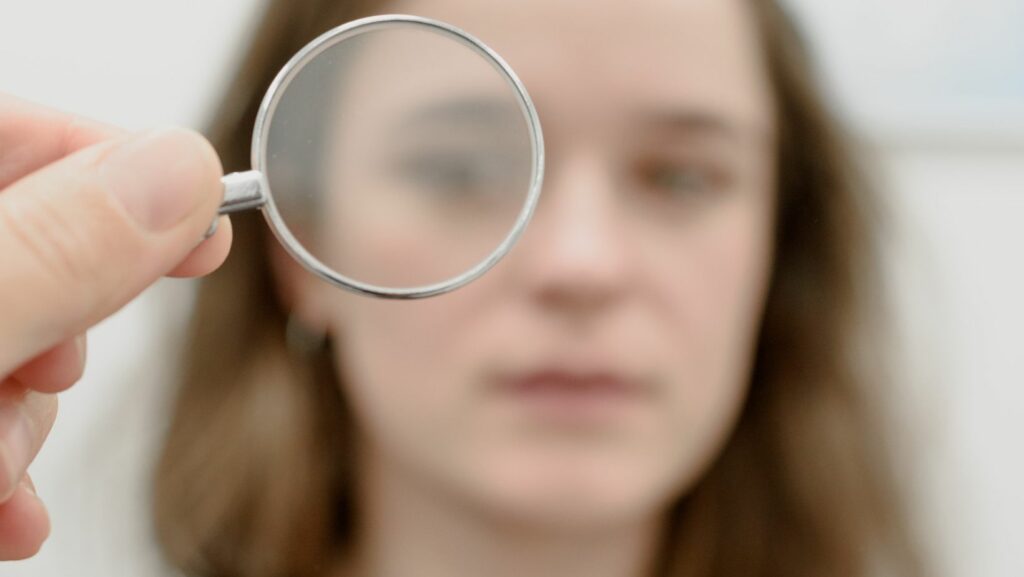Maintaining healthy eyesight doesn’t have to be complicated. In fact, a few simple steps can make a significant difference in protecting your vision. Eating a balanced diet rich in fruits and vegetables is one of the most effective ways to support your eye health. Foods like carrots, spinach, and sweet potatoes are excellent choices due to their high levels of vitamins and antioxidants.
Physical activity benefits your eyes as much as it does your overall health. Regular exercise improves circulation, which can help reduce the risk of conditions that affect your vision. Additionally, sunglasses aren’t just a fashion statement; wearing them shields your eyes from harmful ultraviolet rays that can damage your eyesight over time.

Your lifestyle choices, such as avoiding smoking and managing screen time, also play crucial roles. Smokers are at higher risk of developing age-related macular degeneration, cataracts, and other vision issues. By quitting smoking and practicing good screen habits, you protect your eyes from unnecessary strain and potential long-term damage.
Maintaining Visual Acuity
Maintaining visual acuity involves specific lifestyle choices and practices. Paying attention to your diet, using protective eyewear, ensuring proper lighting and ergonomics, and incorporating eye exercises and rest can support eye health.
Balanced Diet for Eye Health
Incorporating a balanced diet is crucial for maintaining healthy eyesight. Consuming foods that are rich in omega-3 fatty acids, like salmon and walnuts, can help support retinal health. Dark, leafy greens such as spinach and kale are packed with lutein and zeaxanthin, antioxidants that may reduce the risk of chronic eye diseases.
It’s beneficial to include vitamin C-rich foods like oranges and strawberries to protect against cataracts. Zinc, found in nuts and seeds, supports proper eye function. Staying hydrated also plays a role in maintaining optimal vision. Drinking adequate amounts of water keeps your eyes moisturized and reduces dry eyes.
Protective Eyewear
Using protective eyewear is essential for guarding against potential eye damage. Sunglasses with UV protection can significantly reduce exposure to harmful ultraviolet rays from the sun, which can lead to cataracts and macular degeneration. Make sure your sunglasses block 100% of both UVA and UVB rays.
When engaging in activities like sports or home improvement projects, wear safety glasses to shield your eyes from potential injuries. Clear protective lenses are crucial in environments where debris or chemicals could pose a threat. Investing in quality protective eyewear is a proactive step in preserving your eye health.
Proper Lighting and Ergonomics
Ensuring proper lighting and ergonomics in your environment plays a pivotal role in maintaining eye health. Use adequate lighting that reduces glare when reading or working on screens to prevent eye strain. Position your screen at an arm’s length away and at eye level to maintain good posture and reduce strain.
Implementing the 20-20-20 rule can minimize eye fatigue: every 20 minutes, take a 20-second break and focus on something 20 feet away. Adjust your work and home setups to promote comfortable viewing distances and angles. These adjustments can help alleviate unnecessary stress on your eyes.
Eye Exercises and Rest
Incorporating eye exercises and ensuring adequate rest are beneficial for maintaining functional vision. Simple eye exercises such as focusing on near and far objects can strengthen eye muscles and improve flexibility. Practice rolling your eyes to the side, up and down, to increase blood circulation to the eye area.
Sufficient rest is equally important. Ensure you get adequate sleep and take regular breaks from digital screens. Practicing regular blinking helps keep your eyes moisturized, reducing dryness and discomfort. Combining these exercises with good rest habits can contribute significantly to your visual acuity.
Regular Eye Care
Keeping your eyes healthy involves regular eye examinations, understanding common eye conditions, and staying informed about eye health. This proactive approach helps maintain good vision and prevents potential issues from escalating.
Professional Eye Examinations
Regular eye exams are crucial for monitoring eye health and catching any issues early. Optometrists and ophthalmologists can perform comprehensive examinations that assess vision and eye health. It’s recommended to have an eye exam every one to two years, depending on your age and risk factors. Consistent visits ensure any changes in your eyesight are quickly addressed, preventing potential long-term damage.
Getting professional checkups is especially important for individuals with conditions like diabetes or a family history of eye diseases. They can identify problems such as refractive errors, glaucoma, or cataracts early on. In Orlando, advanced cataract surgery can restore clear vision using minimally invasive techniques, reducing recovery time. Regular checkups keep you informed about the most effective treatments and procedures available.
Identifying Common Eye Conditions
Understanding common eye conditions empowers you to manage them effectively. Conditions such as myopia, hyperopia, and astigmatism are common refractive errors that can be identified during eye exams. Recognizing symptoms early allows for timely intervention and treatment, potentially minimizing impacts on vision.

Eye professionals can also detect more serious conditions like glaucoma, macular degeneration, and cataracts. Early identification of these issues through regular visits can prevent severe vision impairment. For example, detecting cataracts early can lead to successful surgeries that significantly improve sight. Knowing these conditions and their treatments helps you take charge of your eye health.
Staying Informed about Eye Health
Staying updated on eye health information equips you to make informed decisions. This includes learning about the latest advances in eye care technology and treatments. Understanding changes in recommendations for eye care, such as new research findings, ensures you adopt the most effective habits for eye health.
Being informed also means recognizing lifestyle factors that can impact vision. Adopting a well-balanced diet rich in nutrients vital for eye health can contribute to maintaining good vision. Regular physical activity and protective measures, like wearing sunglasses with UV protection, are simple habits that benefit your eyes in the long term. Embrace these practices as part of a holistic approach to preserve your eyesight.
